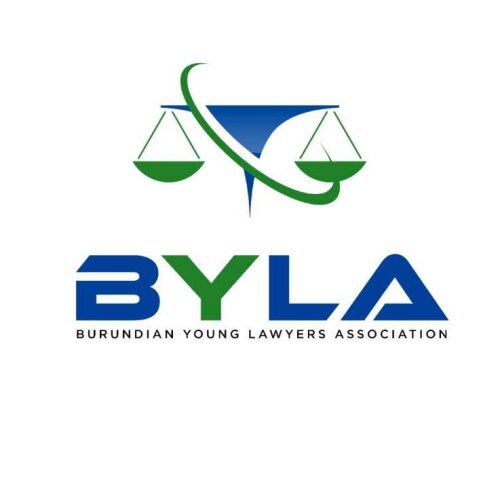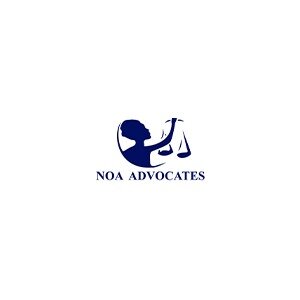Best Debt Capital Markets Lawyers in Bujumbura
Share your needs with us, get contacted by law firms.
Free. Takes 2 min.
List of the best lawyers in Bujumbura, Burundi
About Debt Capital Markets Law in Bujumbura, Burundi
Debt Capital Markets (DCM) refer to the financial marketplace where institutions and governments raise funds by issuing debt instruments, such as bonds or notes, to investors. In Bujumbura, Burundi, this sector is still developing but is becoming increasingly important as the country seeks to fund infrastructure, development projects, and public spending. Activities related to DCM can include the issuance, purchase, and trading of government or corporate bonds, structuring of securitizations, and compliance with local and regional financial regulations. Legal frameworks governing DCM in Burundi are designed to encourage investment while ensuring transparency, investor protection, and regulatory compliance.
Why You May Need a Lawyer
Navigating Debt Capital Markets transactions can be complex, especially in a developing market like Bujumbura. Here are some common situations where legal assistance is essential:
- Planning to issue bonds or other debt instruments as a government body, corporation, or financial institution.
- Investing in local or regional debt instruments and needing to understand risks and compliance obligations.
- Structuring or negotiating syndicated loans or complex financing arrangements.
- Ensuring compliance with local banking and financial sector regulations affecting capital raising.
- Understanding taxation, reporting, and disclosure requirements specific to the Burundian market.
- Resolving disputes related to defaults, restructuring, or non-performance of debt obligations.
- Seeking advice on cross-border transactions involving regional or international investors.
A knowledgeable lawyer can help you mitigate legal risks, ensure all regulatory filings are correctly managed, and negotiate terms favorable to your interests.
Local Laws Overview
Burundi’s legal system incorporates both civil law traditions and local statutes influenced by regional economic communities. Key aspects relevant to Debt Capital Markets in Bujumbura include:
- Regulatory Bodies: The Central Bank of Burundi (Banque de la République du Burundi - BRB) is the principal regulator overseeing financial markets and the issuance of debt securities.
- Issuance Rules: Any company or government agency wishing to issue bonds or similar debt securities must comply with BRB regulations concerning prospectus disclosures, investor protections, and ongoing reporting obligations.
- Listing and Trading: Burundi is a member of the East African Community (EAC) and participates in regional financial initiatives that may affect debt securities trading and listing, either locally or through regional exchanges.
- Taxation: Interest earned by investors and withholding tax on coupon payments are governed by the Burundi tax code, which can affect the attractiveness of certain debt instruments.
- Foreign Investment Laws: Cross-border debt issuances may require additional approvals and are subject to foreign exchange controls managed by the BRB.
It is important for issuers and investors alike to understand these regulatory frameworks to avoid legal complications during transactions.
Frequently Asked Questions
What is a debt security, and how is it used in Burundi?
A debt security is a financial instrument, such as a bond or note, that is issued by a government or company to raise capital. In Burundi, debt securities are increasingly being used to finance public infrastructure, commercial expansion, and government spending.
Who regulates the issuance of bonds in Bujumbura?
The Central Bank of Burundi (BRB) is the main authority overseeing the issuance of bonds and other debt securities within the country.
What are the primary legal risks in Debt Capital Markets transactions?
Legal risks can include non-compliance with disclosure requirements, violation of investor protection rules, and breaches of covenants that could trigger defaults or penalties.
Can foreign investors participate in Burundi’s Debt Capital Markets?
Yes, but foreign investors must comply with local regulations regarding foreign ownership, currency exchange, and may need to obtain regulatory approvals for participation.
What disclosures are required when issuing bonds in Bujumbura?
Issuers must provide a prospectus or information memorandum detailing financial statements, risk factors, use of proceeds, terms of the bond, and any guarantees or security interests associated with the debt.
How are debt instruments taxed in Burundi?
Interest payments to investors are subject to withholding tax as per the Burundi tax code. The exact rate may depend on the type of investor and whether tax treaties apply.
Is it possible to list Burundian bonds on regional exchanges?
Yes, companies and the government can seek listings on regional financial market platforms in the East African Community, subject to meeting the exchange’s listing and regulatory conditions.
How can I resolve a dispute related to a DCM transaction?
Disputes may be resolved through local courts, arbitration, or other alternative dispute resolution mechanisms specified in the transaction documents.
Are there restrictions on the types of entities that can issue bonds in Burundi?
Generally, government bodies and registered corporations can issue bonds, provided they meet the regulatory requirements set by the Central Bank and other relevant statutes.
Why is legal due diligence important in DCM activities?
Legal due diligence helps identify potential risks, ensures compliance with all applicable laws and regulations, and protects participants from unexpected liabilities.
Additional Resources
For further information or specialized guidance on Debt Capital Markets in Bujumbura, consider reaching out to:
- Central Bank of Burundi (Banque de la République du Burundi - BRB): The main regulator for the financial and capital markets sector.
- Bujumbura Finance Ministry: Responsible for public finance and national debt policies.
- East African Community (EAC): Provides information and regional policies affecting member states’ capital markets.
- Local law firms with expertise in banking and finance law: Can offer legal opinions, due diligence, and transaction support.
- Burundi Revenue Authority: For questions concerning taxation of debt instruments and investment returns.
Next Steps
If you require legal advice or assistance with Debt Capital Markets in Bujumbura, Burundi, consider the following steps:
- Identify the nature and scope of your planned transaction or investment.
- Gather all relevant documentation, including corporate records, financial statements, and proposed transaction terms.
- Seek out law firms or legal professionals with a demonstrated track record in banking and finance or capital markets within Burundi.
- Arrange an initial consultation to discuss your goals, any regulatory requirements, and potential legal risks.
- Work with your selected lawyer to ensure all regulatory and disclosure requirements are met, and appropriately structure the transaction.
- If necessary, coordinate with local regulatory authorities to obtain approvals or file necessary documents.
Taking these steps early in your Debt Capital Markets journey will help you make informed decisions, avoid costly mistakes, and increase your chances for a successful transaction.
Lawzana helps you find the best lawyers and law firms in Bujumbura through a curated and pre-screened list of qualified legal professionals. Our platform offers rankings and detailed profiles of attorneys and law firms, allowing you to compare based on practice areas, including Debt Capital Markets, experience, and client feedback.
Each profile includes a description of the firm's areas of practice, client reviews, team members and partners, year of establishment, spoken languages, office locations, contact information, social media presence, and any published articles or resources. Most firms on our platform speak English and are experienced in both local and international legal matters.
Get a quote from top-rated law firms in Bujumbura, Burundi — quickly, securely, and without unnecessary hassle.
Disclaimer:
The information provided on this page is for general informational purposes only and does not constitute legal advice. While we strive to ensure the accuracy and relevance of the content, legal information may change over time, and interpretations of the law can vary. You should always consult with a qualified legal professional for advice specific to your situation.
We disclaim all liability for actions taken or not taken based on the content of this page. If you believe any information is incorrect or outdated, please contact us, and we will review and update it where appropriate.













